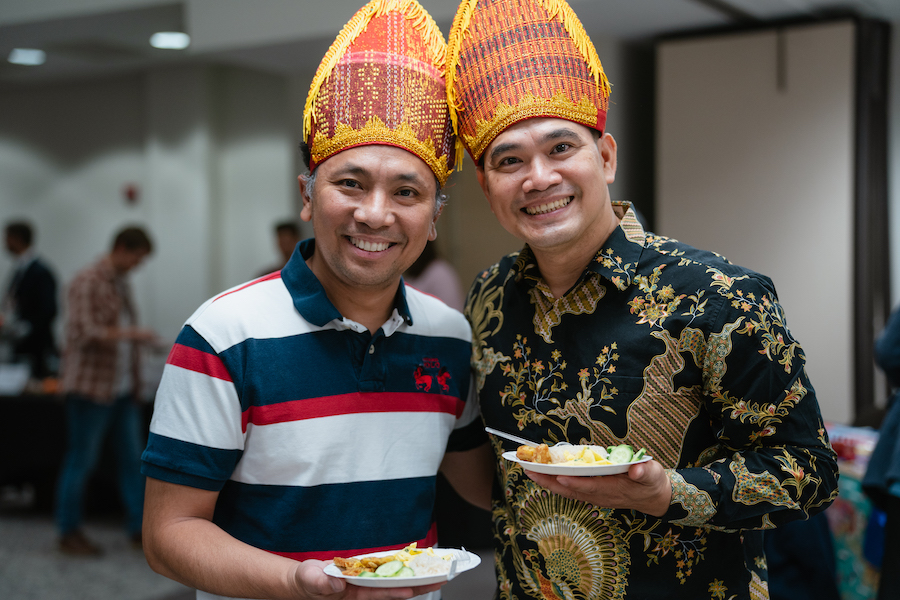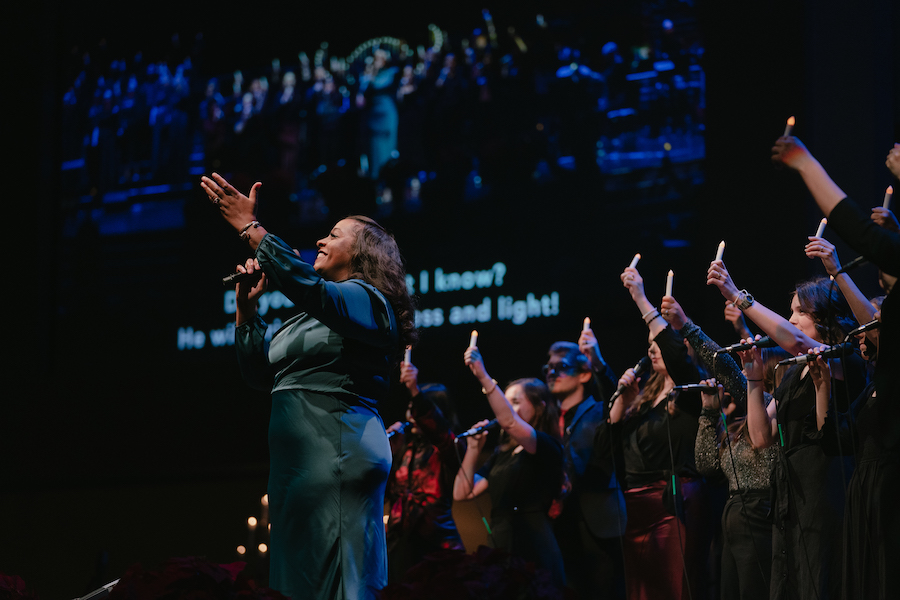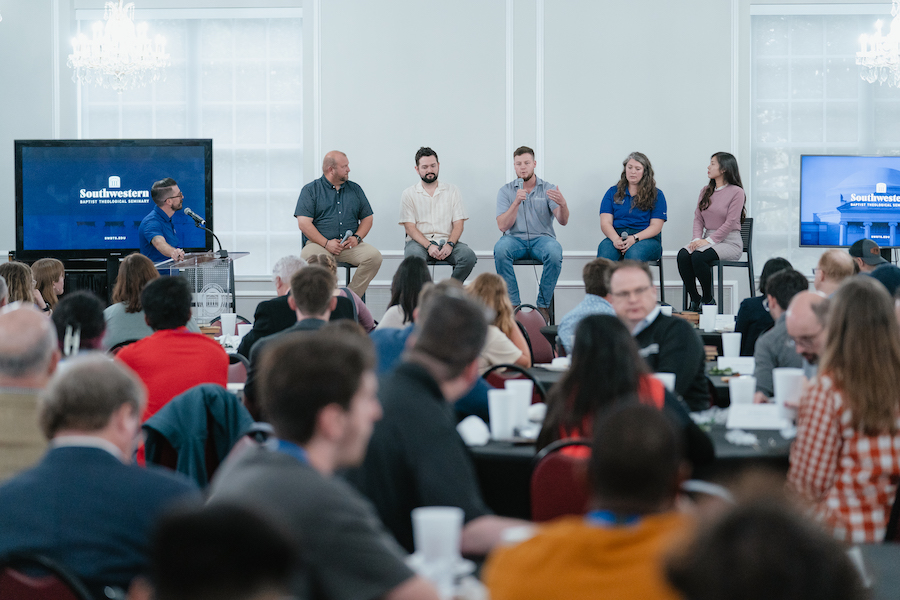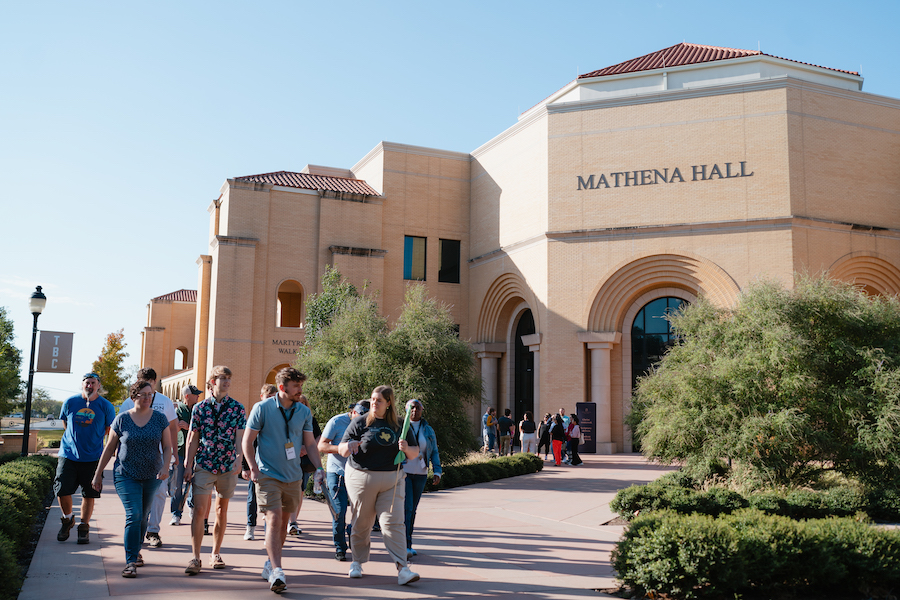President’s Club Dinner emphasizes ministerial commitment of Southwestern students
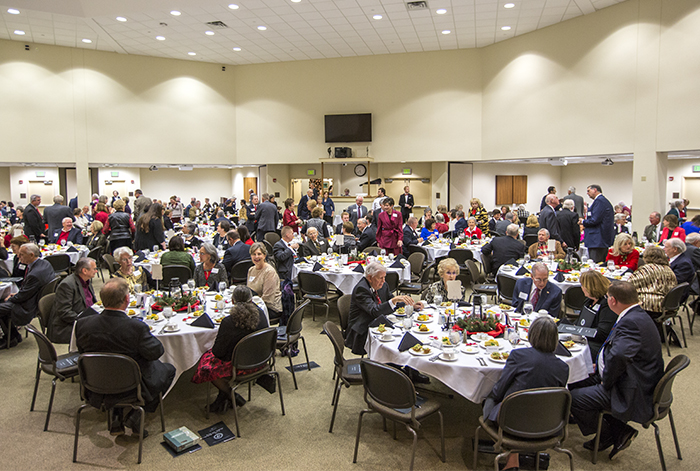
Paige Patterson says the stories of the Southwestern students who come into his office week after week “absolutely amaze” him. Recently, he met a young man from Egypt and a man from Syria, both of whom came to the United States looking for asylum from “the evil and wickedness that has gone on in those places.”
“They found the Lord,” Patterson said to a group of nearly 300 ministry partners and friends of Southwestern. “Now they’re coming here because they want to go back to their countries, but they want to be trained in order to go back and present the Gospel to their people.”
Patterson, president of Southwestern Seminary, cited research indicating that, nationally, 68 percent of students who come to the U.S. for education remain here, meaning that only 32 percent return to their home countries. As the Egyptian and Syrian students illustrate, however, this is not the case for Southwestern. Patterson shared that 98 percent of students who come to the seminary from abroad ultimately return to their home countries or go to a different country whose people need a Gospel witness in their own language. The reason is because these students do not come to Southwestern in order to obtain a good job with a large salary. Rather, their goal is to spread the Gospel across the globe.
Patterson shared this information at the annual President’s Club Dinner, Dec. 1, in order to clarify why the work of Southwestern matters. Explaining to the ministry partners the significance of their prayerful and financial investment in the seminary, Patterson asserted that what transpires at Southwestern carries greater weight than that which is currently transpiring in Washington, D.C.
Though he acknowledged the importance of the work being done in the nation’s capital and advocated prayer for the nation’s leaders, Patterson nevertheless continued that no political party “has any idea what to actually do with the mess this world is in. But we do know what to do.”
Returning to his discussion of Southwestern’s international students, Patterson said, “We have to scholarship these kids, [because] they are the people who are going to make the difference in the world. They are people who have come out of that kind of culture, and they know that Muhammad is not the answer; they know that Jesus is the answer.”
Patterson then highlighted a few of Southwestern’s ministries that equip students to share this “answer” with the nations. Curriculum for the Master of Theological Studies program, for example, currently being translated in multiple languages, will be utilized to train a generation of Bible college professors and pastors in east Asia. In addition, the School of Preaching, which launched this August, is equipping students “to do text-driven preaching to explain to your people what the Word of God says and what they need to do about it.”
“Thank you for caring about our students,” Patterson told the ministry partners, whose generous contributions allow such ministries to take place. “They are the greatest folks in all this world, and you have made a difference in their lives, and consequently, in the lives of hundreds of thousands who will hear them everywhere.”
If you are interested in investing in Southwestern’s students by financially partnering with the seminary, visit swbts.edu/give.
